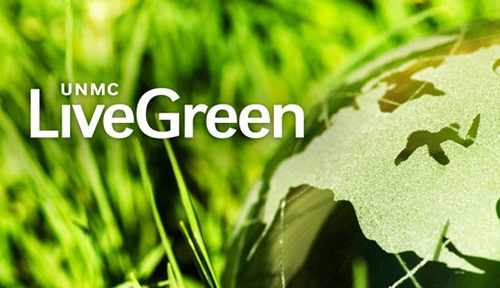In February, the Healthy Earth Alliance (HEAL) hosted a presentation from Aziz Abdoulaye, a PhD student at UNMC, titled, “Building Community Resilience to Extreme Heat in Historical Redlined Areas of Omaha.” Aziz plans to study the distribution of urban heat islands in Omaha this summer.
Urban heat islands occur when developed areas are significantly warmer than surrounding rural areas, an effect that is expected to worsen with climate change. Buildings and roads, which are more abundant in cities, absorb and re-emit the sun’s heat more than vegetation. This heating effect is persistent at night, which is problematic for people, plants and animals who typically recover in cooler overnight temperatures.
Abdoulaye is using the framing of historically redlined areas in Omaha to examine the prevalence of urban heat islands. In 1925, the government-sponsored Home Owners Loan Corporation (HOLC) released risk assessment maps that ranked urban areas from lowest risk to greatest risk of mortgage security. Lenders often used these maps to deny loans to credit-worthy applicants, producing cascading negative effects for low-income and predominantly Black neighborhoods that often were designated as high risk. Redlining worsened segregation and income inequality, effects that still can be observed in Omaha today.
There is research to suggest that heat islands disproportionately impact historically redlined communities and that historically redlined areas may have fewer green spaces, more surface parking and other variables that increase the urban heat island effect.
This summer, Abdoulaye plans to recruit volunteers to drive and bicycle around Omaha with weather sensors to track temperature, humidity and wind on each volunteer’s route. The data will be aggregated to create heat index maps that help inform communities about local extreme weather. Abdoulaye hopes the project will lead to policy changes that include planting vegetation and opening cooling stations in strategic parts of the city.
In Nebraska, the annual number of days above 100 degrees Fahrenheit is expected to double in the next 70 years. Abdoulaye's research will play an important role in strategically increasing resilience to the effects of climate change. Stay tuned for more information about Abdoulaye's research project this summer and ways to get involved.

This is an extremely relevant project. Best wishes Aziz!
Thank you for this research. I hope it will raise awareness in our community and nationally!
Congratulations, Aziz! very important research.
Wonderful insights into our society. Thank you for bringing this forward. I hope we can learn and make changes with this knowledge.
Very interesting and important work! Thank you!